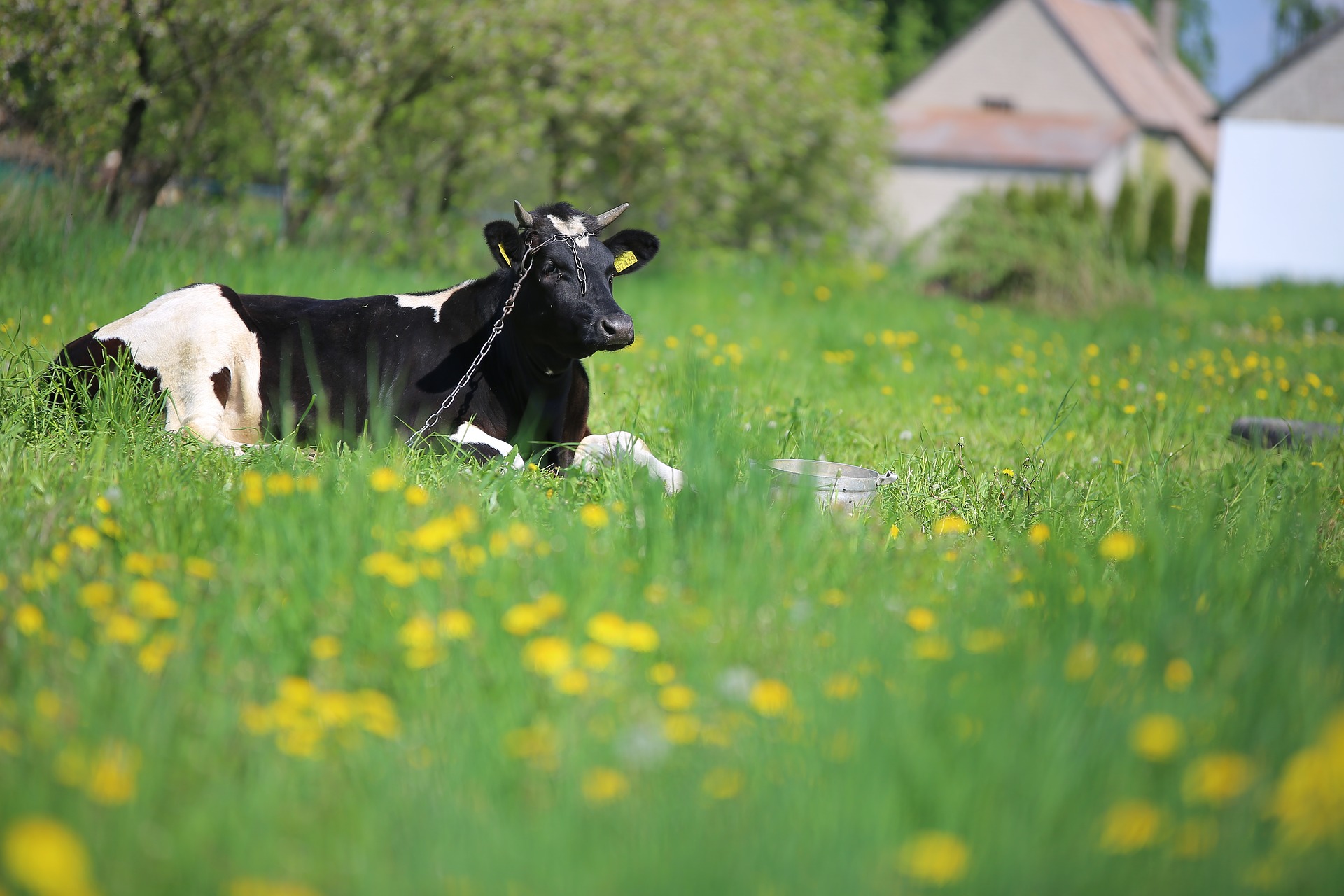Humanity is experiencing one of modern memory’s most serious crises in 2020. The devastating loss of life and the immense financial disruption triggered by the COVID-19 pandemic will alter societies and economies forever. The Institute for Economics and Peace (IEP) has released COVID-19 and Peace, a report that analyzes the crisis with the help of socio-economic development and peace building dimensions.
According to the report, prior to lock-down air travel was the socio-economic aspect most strongly associated with the amount of COVID-19 infections. The substantial amount of air traffic in France, Spain, Italy, UK and the US contributed to the high level of circulation of the virus among them. Since the pandemic spread all around the world, nations have instituted comprehensive travel controls to combat it.
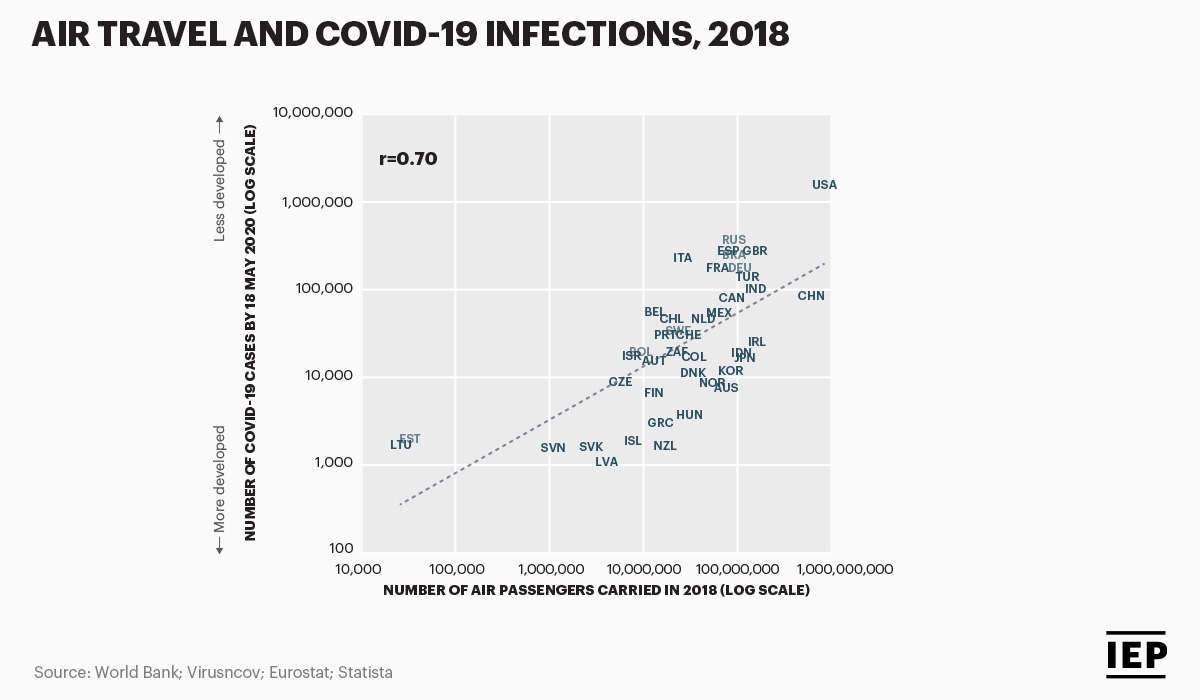
Consequences of COVID-19
The subsequent measures taken against the pandemic by countries has at the same time mitigated and fired up massive unrest in various places. The decade long trend of increasing protests, disturbances and general strikes is more likely to be exacerbated as the economic downturn intensifies and people get more familiar with the pandemic.
The report also predicts that the pandemic may also change crime trends across the planet. While certain types of crime such as riots and battles have declined due to lock-down measures, there are other areas, such as incidents of domestic violence, self-harm and suicide which have risen. The use of suicide and mental health lines due to the social isolation brought upon by the pandemic has also increased significantly.
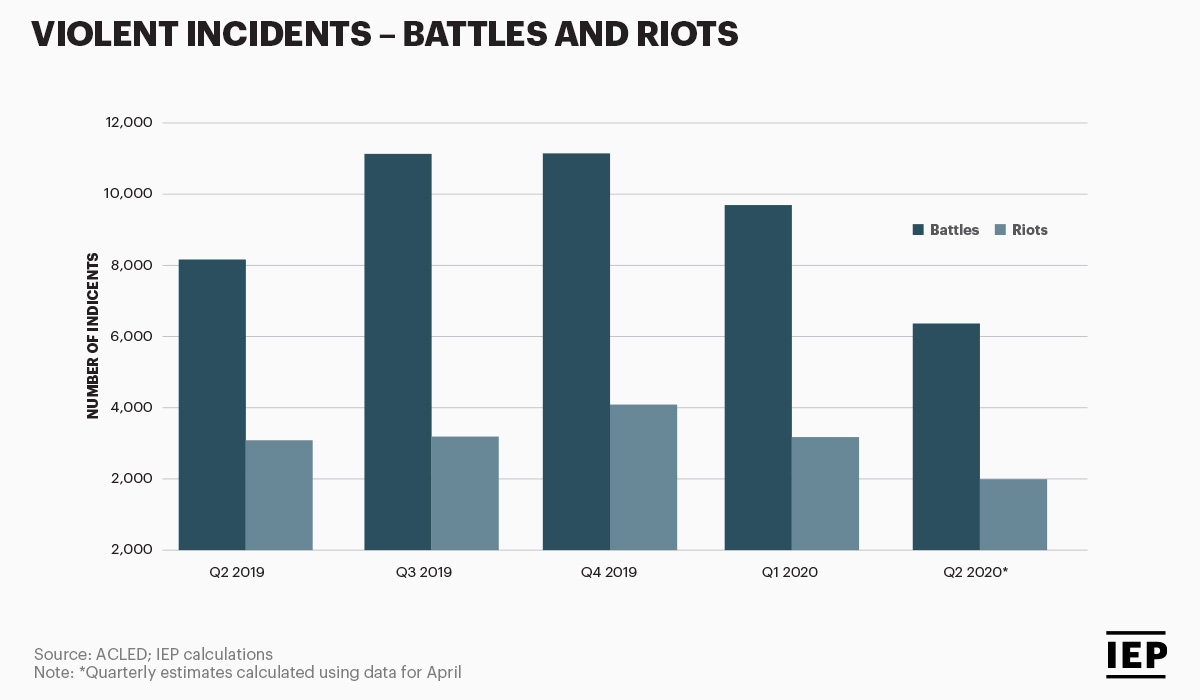
Effect on business
There has been a severe decline in tourism with international air flights decreasing by more than 90% in some countries. According to OECD tourism represents 4.4% of GDP and 21.5% of service exports among its Member States. Only 4 months without tourism would undermine 2% points of OECD annual GDP increase. This implies that if the OECD ‘s average GDP growth in 2020 were expected to reach 2.3% as in 2018, the decline in international tourism on its own would be enough to almost negate this development.
Related articles: The COVID-19 Pandemic and Socio-Economic Development | COVID-19 and Conflict: Is Peace the Cure? | COVID-19: The Women, Peace and Security Agenda at Risk
The 2020 global average GDP growth has been adjusted to -3% from 2.9% due to COVID-19 as well as retraction on the basis of per capita. While the world GDP will shrink by 6% according to predictions for developed countries, it will be lower for developing countries even though among them the number of households below the poverty line will increase.
The impact on business environment will not be the same across all industries. Sectors that will suffer the most disruptions will be banking, finance, travel, tourism, recreation, aviation, hospitality, retail, education, shipping, energy and mineral resources. On the other hand information technology telecommunications, healthcare and food production are the sectors least likely to be negatively impacted. After COVID-19 dies down, several countries may seek to restart economic growth, likely by launching large development programs that will improve construction and industrial machinery industries.
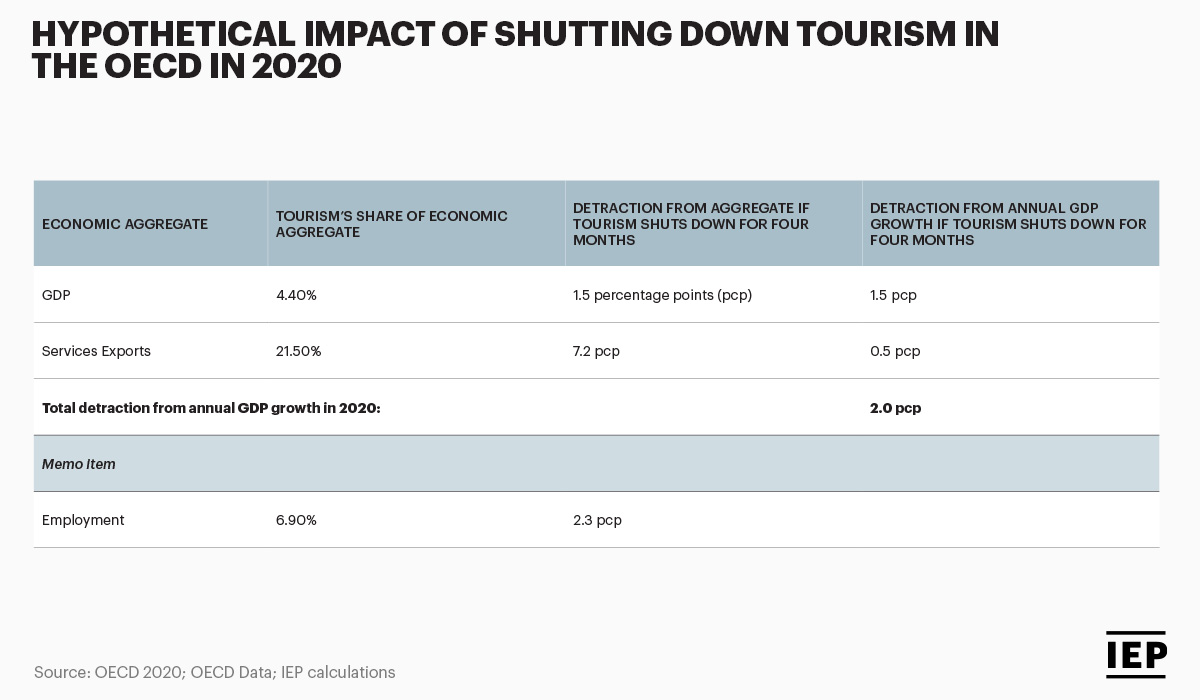
Positive Peace
IEP’s Positive Peace provides a framework to comprehend and tackle the complicated challenges in the world. It is defined as “the attitudes, institutions and structures that create and sustain peaceful societies”. Positive Peace evaluates the socio-economic progress rate of a society by assessing its future growth potential, durability as well as its capacity to address problems without resorting to the use of force.
Related articles: Global Peace Index 2020| The five most peaceful countries in 2019 | The Global Terrorism Index 2019
COVID-19 and the resulting economic recession are expected to transform the way some countries function dramatically. Positive Peace can be utilized as an instrument to figure out which nations can better handle the pandemic, recover better and adjust to future circumstances. The present and future overall view of Positive Peace will be influenced by these long-lasting measures.
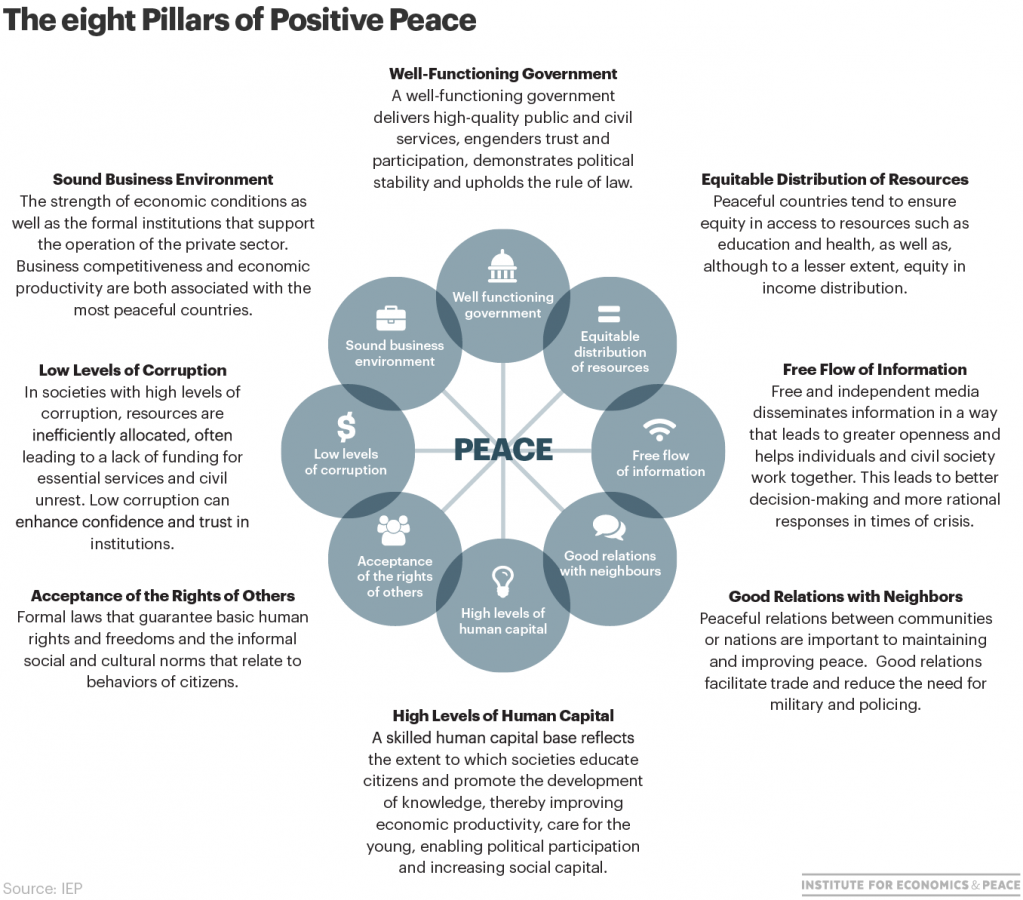
The coronavirus has underlined how the global socio-economic system is intertwined, complicated and delicate. Global traveling and trade systems have crumbled over a few weeks, social standards and values have realigned while freedoms and rights taken for granted have been rescinded. The loss of trust in the world’s ability to cope with these emergencies has also become obvious. The instability, along with the effects of the epidemic and the economic consequences that will arise are likely to refocus the emphasis on other socio-economic causes that have arisen such as increasing income disparities, the deterioration of working standards in developing countries and disaffection with the current political system. The future will be an altogether different one from the present as a result of these trends.






